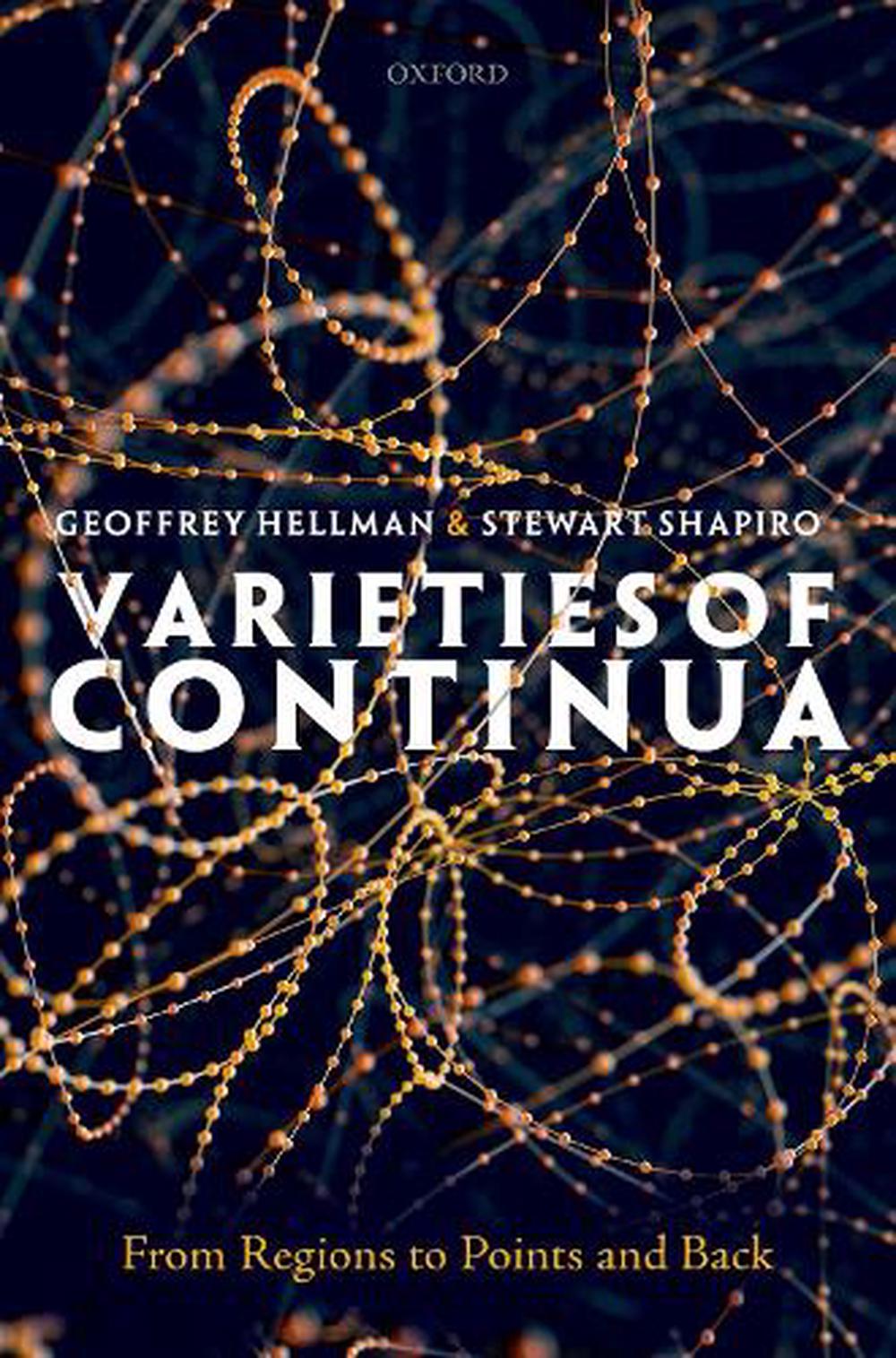
Varieties of Continua
by Geoffrey Hellman, Stewart Shapiro
Hellman and Shapiro explore the development of the idea of the continuous, from the Aristotelian view that a true continuum cannot be composed of points to the now standard, entirely punctiform frameworks for analysis and geometry. They then investigate the underlying metaphysical issues concerning the nature of space or space-time.
Hardcover
English
Brand New
Publisher Description
Varieties of Continua explores the development of the idea of the continuous. Hellman and Shapiro begin with two historical episodes. The first is the remarkably rapid transition in the course of the nineteenth century from the ancient Aristotelian view, that a true continuum cannot be composed of points, to the now standard, point-based frameworks for analysis and geometry found in modern mainstream mathematics (stemming from the work of Bolzano, Cauchy,Weierstrass, Dedekind, Cantor, et al.). The second is the mid-tolate-twentieth century revival of pre-limit methods in analysis and geometry using infinitesimals including non-standard analysis (due to AbrahamRobinson), and the more radical smooth infinitesimal analysis that uses intuitionistic logic. Hellman and Shapiro present a systematic comparison of these and related alternatives (including constructivist and predicative conceptions), weighing various trade-offs, helping articulate a modern pluralist perspective, and articulate a modern pluralist perspective on continuity. The main creative work of the book is the development of rigorous regions-based theories of classical continua, includingEuclidean and non-Euclidean geometries, that are mathematically equivalent (inter-reducible) to the currently standard, point-based accounts in mainstream mathematics.
Author Biography
Geoffrey Hellman received his BA and PhD from Harvard (1973). Having published widely in analytic philosophy and philosophy of science, he has, since the 1980s, concentrated on philosophy of quantum mechanics and philosophy and foundations of mathematics. Following the lead of his adviser, Hilary Putnam, Hellman has developed modal-structural interpretations of mathematical theories, including number theory, analysis, and set theory. He has also worked onpredicative foundations of arithmetic (with Solomon Feferman) and pluralism in mathematics (with J.L. Bell). In 2007 he was elected as a fellow of the American Academy of Arts and Sciences. Stewart Shapiroreceived an MA in mathematics in 1975, and a PhD in philosophy in 1978, both from the State University of New York at Buffalo. He is currently the O'Donnell Professor of Philosophy at The Ohio State University, and he serves as Distinguished Visiting Professor at the University of Connecticut, and as Professorial Fellow at the University of Oslo. He has contributed to the philosophy of mathematics, philosophy of language, logic, and philosophy of logic, publishing monographs on higher-orderlogic, structuralism, vagueness, and pluralism in logic.
Table of Contents
1: The Old Orthodoxy (Aristotle) vs the New Orthodoxy (Dedekind-Cantor)2: The classical continuum without points3: Aristotelian and Predicative Continua4: Real numbers on an Aristotelian continuum5: Regions-based Two Dimensional Continua: The Euclidean Case6: Non-Euclidean Extensions7: The matter of points8: Scorecard
Review
Readers interested in a regions-based account of the continuum will find it a temendous resource, and its conclusions are sure to factor into future debates on the foundations of mathematics. * Richard T.W. Arthur, Philosophia Mathematica *
Long Description
Varieties of Continua explores the development of the idea of the continuous. Hellman and Shapiro begin with two historical episodes. The first is the remarkably rapid transition in the course of the nineteenth century from the ancient Aristotelian view, that a true continuum cannot be composed of points, to the now standard, point-based frameworks for analysis and geometry found in modern mainstream mathematics (stemming from the work of Bolzano, Cauchy,Weierstrass, Dedekind, Cantor, et al.). The second is the mid-tolate-twentieth century revival of pre-limit methods in analysis and geometry using infinitesimals including non-standard analysis (due to Abraham Robinson), and the more radical smooth infinitesimal analysis that uses intuitionistic logic. Hellmanand Shapiro present a systematic comparison of these and related alternatives (including constructivist and predicative conceptions), weighing various trade-offs, helping articulate a modern pluralist perspective, and articulate a modern pluralist perspective on continuity. The main creative work of the book is the development of rigorous regions-based theories of classical continua, including Euclidean and non-Euclidean geometries, that are mathematically equivalent (inter-reducible) to thecurrently standard, point-based accounts in mainstream mathematics.
Review Quote
"Readers interested in a regions-based account of the continuum will find it a temendous resource, and its conclusions are sure to factor into future debates on the foundations of mathematics." -- Richard T.W. Arthur, Philosophia Mathematica
Feature
Offers both a new account of the continuous and a historical study of the development of our understanding of the notionDraws together philosophy and mathematics in a way that is accessible to non-specialist readersCo-authored by two eminent philosophers
Details

